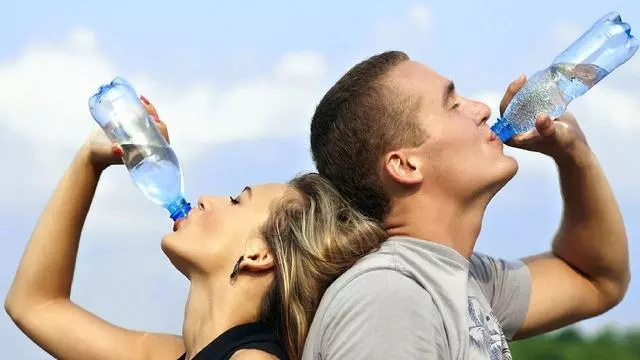Dehydration is a common cause of heatstroke. Scientists have expressed concern that people often do not drink enough when hiking in hot weather.
 6041
6041
During hikes, people often do not drink enough. In addition to discomfort, insufficient hydration often leads to heat stroke. It is known that in about a quarter of cases, this dangerous disorder develops precisely due to a lack of water. Scientists point out that hikers are often careless about this.
A study demonstrating the importance of good hydration when hiking in hot weather was published in the International Journal of Environmental Research and Public Health.
“Current hiking recommendations are generally very vague and focus more on general safety issues than adequate water. They don't take into account fitness level or the importance of increasing heat exposure,” said Floris Wardenaar, an assistant professor at Arizona State University and co-author of the study.
The study involved 12 volunteers aged 20 to 30. They were first asked to climb a small mountain in moderate weather conditions (20 degrees Celsius), and then in the heat (40 degrees Celsius). The participants were asked to take more water with them than they usually take. The tourists were asked to walk at the maximum speed that did not cause discomfort.
Before and after the hike, the participants' metabolic rates, weight, heart rate, and hydration level (the body's water saturation) were measured.
The participants lost about 1% of their body weight through sweat during the hike, regardless of whether the hiking conditions were moderate or hot. The fact is that in hot weather people drink more, which maintains their weight at a certain level. In warm weather people sweat less, but also drink less.
“Maintaining a weight loss of 1% is possible, and it is unlikely to lead to a large change in physical performance. What worries me is that when people walk longer than 80-90 minutes, in the heat, they usually do not take in enough water, which leads to greater weight loss,” Vandenaar explained.
Compared to moderate weather conditions, in the heat, the subjective perception of stress from the hike was 19% higher, the internal temperature increased, and the ascent took significantly longer.
Theoretically, an increase in the duration of the hike due to heat can greatly increase tourists' need for water, scientists point out.
“Heat slows us down. This means that a distance that takes 75 minutes in normal weather may take 95 minutes in hot weather. People should keep this in mind, especially when their journey exceeds 90 minutes,” added Vandenaar.
Based on the findings, Vandenaar recommends that all tourists check whether they drink enough water during hiking time. To do this, before going on a hike, you need to multiply your weight in kilograms by 0.01. Then subtract your weight after the hike from your weight before the hike. If the weight loss is greater than the figure obtained by multiplying the weight by 0.01, you are not drinking enough during the hike.
